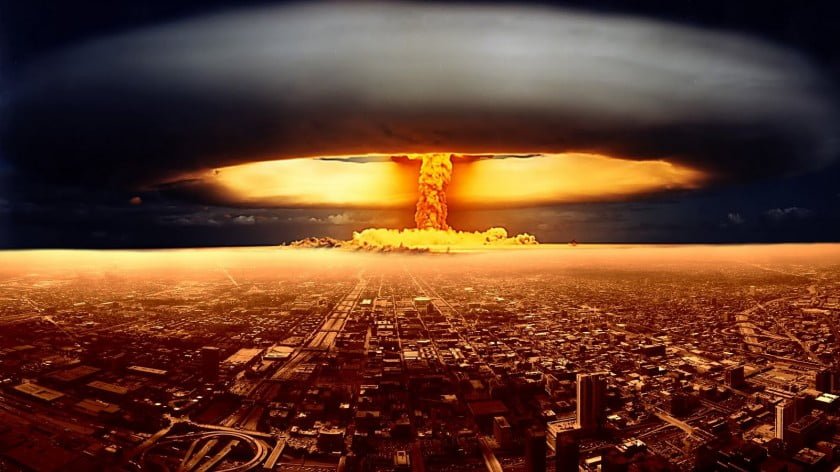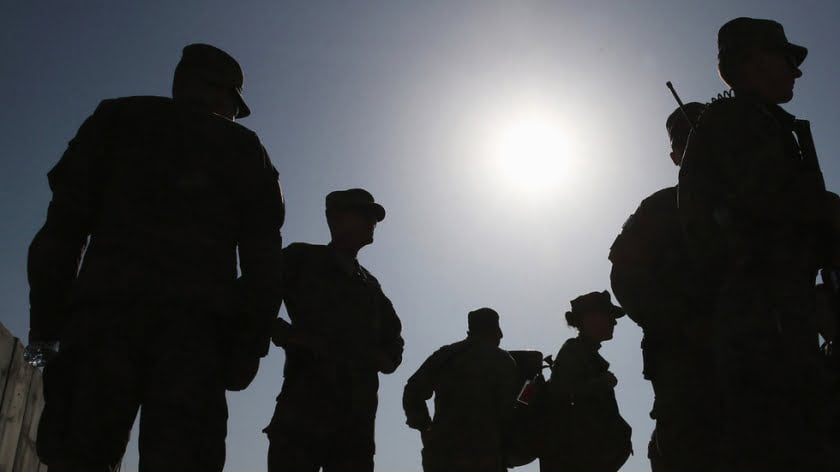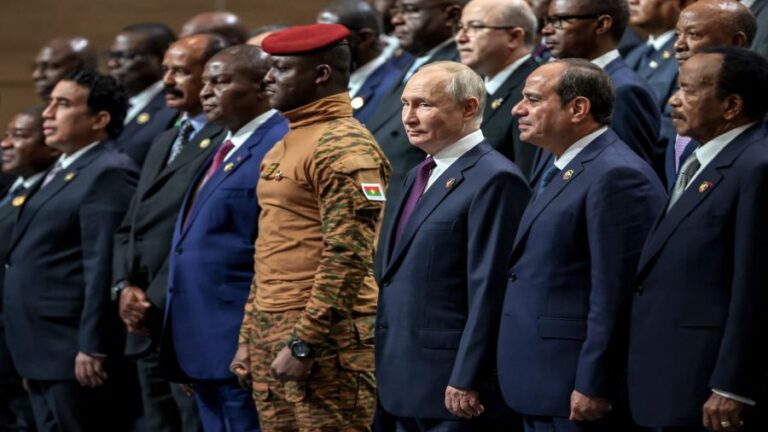Explaining the Incongruence Between the Iranian & Syrian Stances Towards Nagorno-Karabakh
Wartime allies Iran and Syria are on opposite sides in Nagorno-Karabakh just like they are in Libya after the first-mentioned reaffirmed its support for Azerbaijan’s territorial integrity and demanded Armenia’s withdrawal from the occupied territories while the second couldn’t pass up the opportunity to blame Turkey for the conflict, though they’re both in agreement concerning the Russian intelligence chief’s warning about the danger of Islamist militants’ reported presence on the battlefield.
The Anti-ISIS Allies Aren’t Always In Agreement
Iran and Syria don’t always see eye to eye on regional affairs even though they’re trusted wartime allies despite whatever the Alt-Media Community imagines about them supposedly always being in perfect agreement with one another. Not only are they on opposite sides in Libya like the author wrote about earlier this year, but they’re also on different sides of the proverbial barricades when it comes to Nagorno-Karabakh too. An Iranian Foreign Ministry spokesman confirmed earlier this week that his country respects Azerbaijan’s territorial integrity and demanded Armenia’s withdrawal from the occupied territories. The Supreme Leader’s senior advisor also reaffirmed this position but took it a step further by comparing Armenia’s occupation of Azerbaijan to “Israel‘s” occupation of Palestine. President Assad, meanwhile, couldn’t pass up the opportunity to blame Turkey for starting the conflict, and it helped his cause that he didn’t make any reference to the four UNSC Resolutions (822, 853, 874, 884) demanding the Armenian military’s unconditional withdrawal from the universally recognized Azerbaijani territory that it occupies. Both countries, however, are in agreement with the Russian intelligence chief’s warning about the danger of Islamist militants’ reported presence on the battlefield.
Iranian & Syrian Interests
The incongruence in their stance towards Nagorno-Karabakh is attributable to their different national interests. The author explained the Islamic Republic’s more in detail in his recent piece about how “Iran’s Official Support Of Azerbaijan Proves That Mutual Suspicions Can Be Overcome”. Besides domestic political, regional security, and international legal interests, there are also economic ones related to the support that Iran receives from Turkey in surviving the the US’ “maximum pressure” strategy. Growing ideological convergences between the two as Turkey increasingly Islamifies under President Erdogan is another shared interest. For these reasons as well as the fact that Iran has always officially supported the Azerbaijani position, it shouldn’t have been surprising that it once again backed Baku. Syria’s interests are altogether different, however. Its soft power interests lie in denigrating Turkey’s regional reputation. For reasons of realpolitik, its geopolitical interests are in becoming an unofficial member of the emerging anti-Turkish coalition jointly led by the GCC & France and comprising Armenia, the PKK, Cyprus, Greece, and Egypt. This bloc is supported by the US and “Israel”, though Syria doesn’t endorse either of them nor the PKK (the last of which at least not anymore, that is).
Shared Anti-Terrorist Concerns
Despite their clear differences towards the Nagorno-Karabakh Continuation War, Iran and Syria are on the same page when it comes to the threat of Islamist militants’ reported presence in the conflict, which the Russian intelligence chief drew highly publicized attention to earlier this week. In this sense, President Assad’s candidness in directly accusing Turkey of facilitating these militants’ transfer to the battlefield can be interpreted as him saying what neither his Iranian nor Russian counterparts feel comfortable enough to say in public for reasons related to their countries’ overall geopolitical interests with Turkey. Iran’s were earlier articulated — especially with regards to economics and ideology — whereas Russia’s rest with nuclear energy cooperation, commercial ties, diplomatic and military coordination in Syria, arms sales, and pipeline geopolitics. Relations aren’t perfect between either of these two countries and Turkey, but they’re still important enough for neither of the first-mentioned pair to openly accuse their partner of exporting terrorism throughout the region, hence the political convenience in having the Syrian President publicly voice their concerns instead. Those concerns, though, must be put into context in order to better understand them.
Sensitivities About Armed Islamists
Armed Islamists have a history of destabilizing all three countries. Radical groups fought against the Iranian government since the Islamic Revolution, played a leading role in driving Russia’s two federal interventions in Chechnya, and were responsible for the Hybrid War of Terror on Syria. Moreover, these three also jointly fought against the world’s most notorious Islamist terrorist organization, the so-called “Islamic State”. In spite of their concerns, however, they don’t regard all armed Islamists are terrorists. This is evidenced by the fact that Iran supports Hamas, Hezbollah, and other anti-”Israeli” groups due to their shared anti-Zionist interests, while Syria and Russia support Hezbollah’s anti-terrorist contributions and recognize some armed anti-government Islamist groups in the Arab Republic as “legitimate” actors in its war with whom they’ve officially held military and political negotiations (the “ceasefires” and Astana peace process most notably). Nevertheless, the reports that some of these fighters (whether regarded by one, some, or all three of them as terrorists and/or “legitimate” actors) are being sent by Turkey to Azerbaijan worries them so much because they fear that they might spread throughout the region after the war ends and thus rekindle relevant conflicts within their borders.
The Syrian Wild Card
What’s most important to pay attention to, however, is that Russia and Iran still stand in support of the same four UNSC Resolutions respecting Azerbaijan’s territorial integrity and demanding the Armenian military’s unconditional withdrawal from its neighbor’s occupied lands. Syria’s stance, for as important as it might be for soft power purposes and the country’s speculative intentions to unofficially join the emerging anti-Turkish coalition that’s forming, is inconsequential in shaping the outcome of events. It’s only relevant in the event that Damascus or Ankara asymmetrically respond to disadvantageous developments in the Nagorno-Karabakh Continuation War by refocusing their efforts on the Idlib front, which could either distract Turkey’s strategic attention from that conflict or indirectly do the same for Russia depending on the course of the war. Even so, both Great Powers are strong enough to not lose focus on Nagorno-Karabakh even if another series of escalatory incidents occurs in Idlib. In that scenario, though, Iran might be able to exploit events in order to position itself as the most neutral of all relevant Great Powers in the Nagorno-Karabakh Continuation War in order to push its peace plan at the others’ expense, which might also serve Syria’s strategic interests.
Concluding Thoughts
The incongruence between the Iranian and Syrian stances towards Nagorno-Karabakh is an interesting case study which allows one to better understand these wartime allies’ different national interests in the region. It also debunks the Alt-Media dogma implying that the two always see eye to eye on every issue. What’s most important to pay attention to, however, is how Syria seems to have been tasked by both Iran and Russia with articulating their concerns about Turkey reportedly facilitating the transfer of armed Islamists to the conflict zone. Neither Iran nor Russia could publicly accuse their Astana peace process partner of doing such a thing, hence why the responsibility seems to have fallen upon Syria due to its obvious interests in denigrating Turkey’s regional reputation any chance that it gets. Even so, this troubling issue isn’t by any means insurmountable since there’s more that unites those three countries — Iran, Russia, and Turkey — than divides them, but the wild card scenario of Damascus possibly making a move on Idlib while Ankara seems to be distracted by Nagorno-Karabakh could throw a wrench in their cooperation by possibly prompting a crisis in Russian-Turkish relations that Iran could then exploit even if only coincidentally and not by design.







